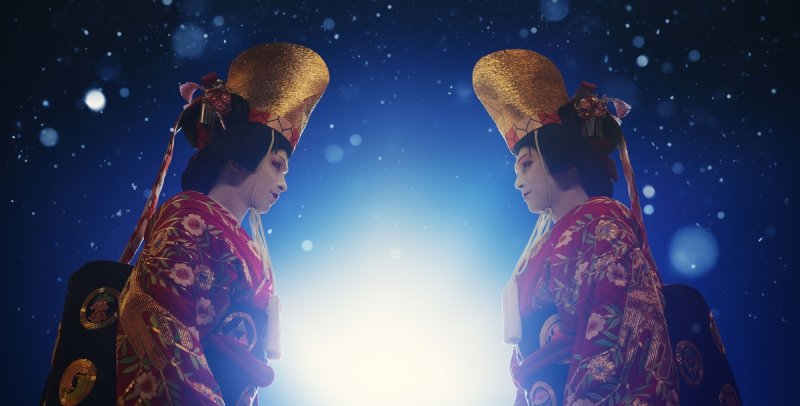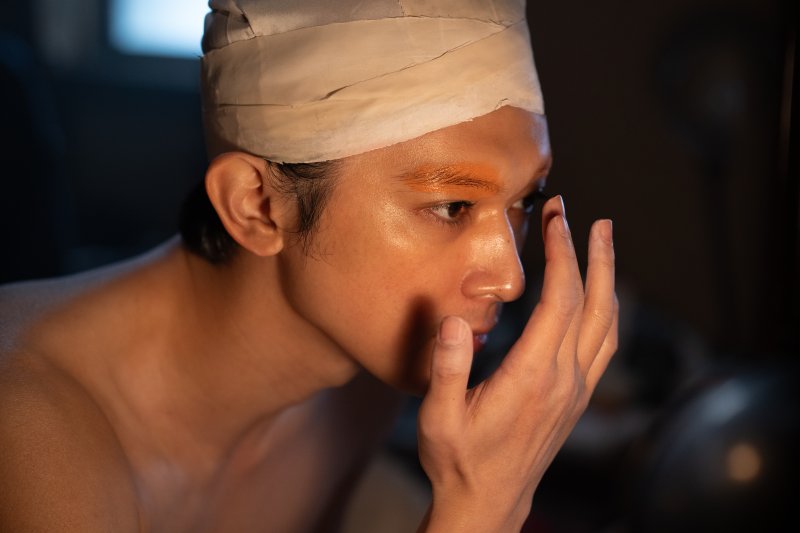An Outsider Named a National Treasure? Zainichi Korean Director Lee Sang-il Writes a New Chapter with 'Kokuho'
- Input
- 2025-11-17 10:40:32
- Updated
- 2025-11-17 10:40:32


[Financial News] "No matter how painful things get, you have no choice but to rely on your talent."
In the film 'Kokuho,' Hanjiro Hanai (Ken Watanabe), the head of a prestigious Kabuki family, offers this line to his disciple Kikuo. The statement carries multiple layers of meaning. It is heartfelt advice to a disciple competing for the position of successor against his own son, and it also reflects the artisan’s mindset of placing art above blood ties.
'Kokuho,' which has attracted over 12 million viewers in Japan and is approaching the record for the highest-grossing live-action film in the country’s history, will be released domestically on the 19th. The film’s artistic merit has also been recognized, as it has been selected to represent Japan in the Academy Award for Best International Feature Film next year.
While 'Farewell My Concubine' brought the traditional Chinese art of Peking opera to the world stage, 'Kokuho' meticulously captures the aesthetics of Japanese Kabuki and the relentless determination of its artists. At the center of the story is Tachibana Kikuo, a boy who, because he is not the legitimate heir, must overcome higher barriers than anyone else.
Kikuo, who comes from a yakuza family, loses his father before his eyes and is adopted by Hanjiro, the head of a renowned Kabuki family. Entering the world of Kabuki as an outsider, he becomes entangled with Hanjiro’s son, Shunsuke, throughout their upbringing. Their relationship goes beyond a simple rivalry, becoming a mirror reflecting each other in the face of the absolute standard of art.
For Shunsuke, Kikuo is both a source of motivation to hone his artistry and a barrier he must overcome. Likewise, for Kikuo, Shunsuke represents a fateful challenge and the very symbol of legitimacy demanded by the world of Kabuki.
Original author Shuichi Yoshida reportedly spent three years visiting Kabuki dressing rooms to document this world. Director Lee Sang-il skillfully weaves this sense of authenticity and detail into the film’s visual and emotional rhythm. From the moment the makeup is completed to the actors’ delicate movements on stage, the film offers more than a simple recreation of a Kabuki performance—it is a cinematic interpretation realized through the camera’s observation and the pacing of the editing, making it a compelling watch.
The actors’ performances, in harmony with this nuanced direction, greatly enhance the film’s credibility. Ryo Yoshizawa, who plays the adult Kikuo, spent over a year and a half embodying the gestures of an onnagata, a specialist in female roles. At the Busan International Film Festival (BIFF) last October, he remarked, "The director gave me requests that seemed impossibly difficult and even frustrating, but within that, I felt an unwavering trust and love that I could accomplish it."
Ryusei Yokohama, who plays Shunsuke, convincingly portrays the complex emotions of privilege, pressure, and jealousy as the legitimate heir of a distinguished family. Ken Watanabe, meanwhile, anchors the film as an artisan bearing the weight of tradition.
Above all, the fact that 'Kokuho' is directed by Lee Sang-il, a Zainichi Korean filmmaker, adds a dramatic layer to the film’s power. Just as the director himself is an 'outsider not recognized as a legitimate heir' in Japanese society, his journey naturally parallels that of Kikuo.
Although the runtime stretches to 175 minutes, the film’s exploration of traditional aesthetics, fierce competition, and the fundamental questions of art blend together so engagingly that time passes unnoticed.
[email protected] Shin Jin-a Reporter